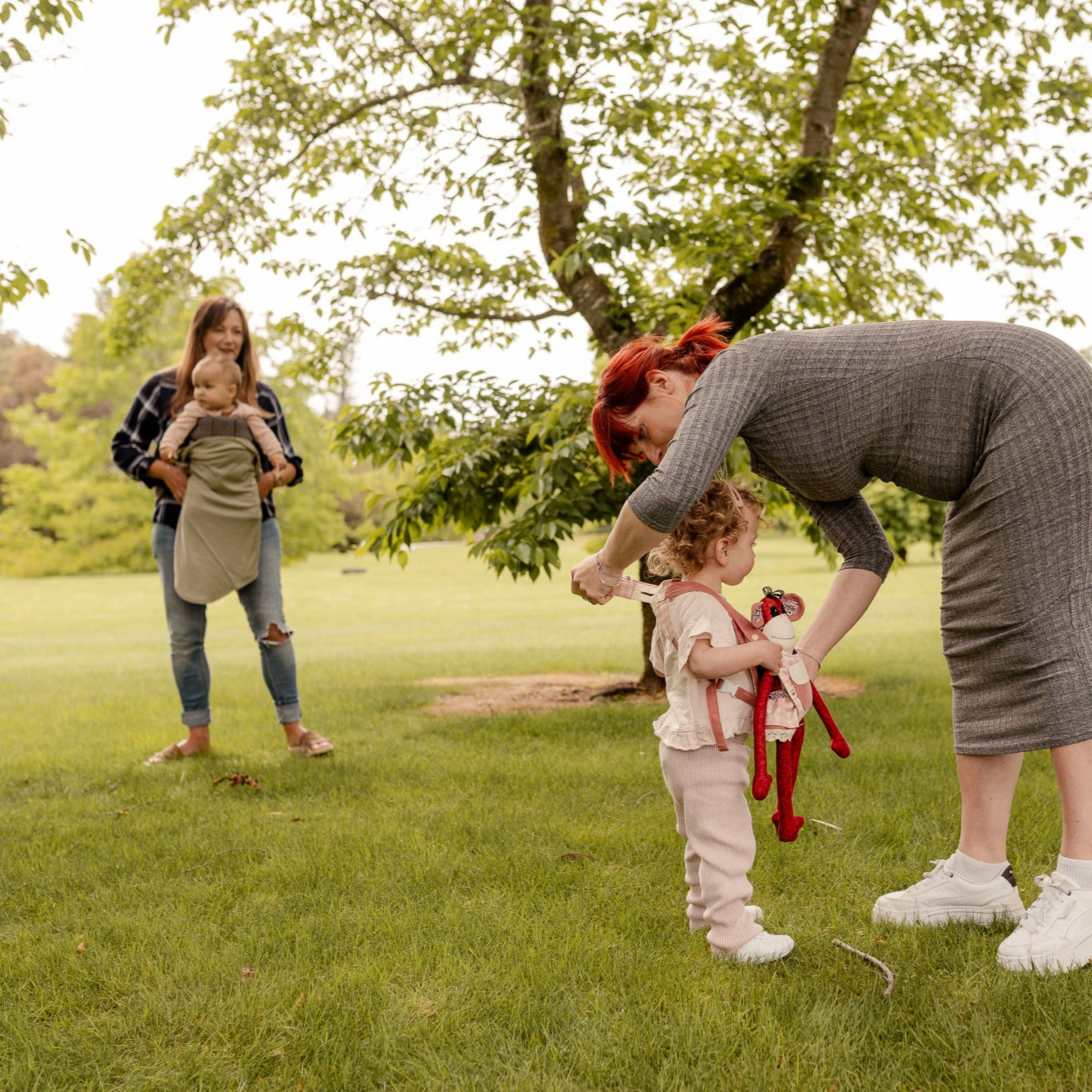
Legacy & 'Generativity'
One of the most profound psychological needs as we progress through life is what psychologist Erik Erikson termed "generativity"—the desire to nurture and guide the next generation, to leave a lasting legacy, and to feel that one's life has mattered beyond oneself. For grandparents, particularly those separated by distance, the grandparent-grandchild relationship offers a powerful avenue for fulfilling this fundamental human need.
Erikson's theory of psychosocial development identifies the later-life stage as "generativity versus stagnation." Those who successfully navigate this stage find ways to contribute to future generations and feel productive and accomplished. Those who struggle may experience stagnation, feeling disconnected from the world and questioning the meaning of their existence. Grandparenting—even from afar—provides one of the most natural and fulfilling paths to generativity.
Dr. Dan McAdams, professor of psychology at Northwestern University and a leading researcher on generativity, has spent decades studying how people create meaning through contributing to future generations. His research shows that generative adults report higher life satisfaction, better mental health, and a stronger sense that their lives have purpose and meaning. For grandparents, the opportunity to pass on family stories, values, wisdom, and love to grandchildren fulfils this generative need in profound ways.
The concept of legacy extends beyond material inheritance. Research published in the Journal of Family Psychology found that grandparents who actively share family history, cultural traditions, and personal stories with grandchildren report greater life satisfaction and reduced anxiety about mortality. This "narrative legacy"—the stories, values, and wisdom passed down—creates a sense of continuity and immortality. As author Mitch Albom writes in Tuesdays with Morrie, "Death ends a life, not a relationship." The bonds forged through intentional grandparenting transcend physical presence and time itself.
Distance need not diminish legacy-building. In fact, the intentionality required for remote grandparenting can actually deepen it. A grandparent who writes letters sharing childhood memories, records videos explaining family recipes, or creates memory books documenting family history is actively constructing a tangible legacy. These artefacts become treasures that grandchildren can return to throughout their lives, long after the grandparent is gone.
Author Isabel Allende, in her memoir Paula (written as a letter to her dying daughter), demonstrates the power of narrative legacy. She writes, "We only have what we give away." For grandparents, the stories, traditions, and values they share with grandchildren become their most enduring gift—one that can be given effectively across any distance through letters, recordings, and intentional conversation.
Research by Dr. Marshall Duke and Dr. Robyn Fivush at Emory University found that children who know family stories and history have higher self-esteem, better coping skills, and stronger family cohesion. Their "Do You Know?" scale measures intergenerational family narrative knowledge, and children who score higher consistently show better psychological adjustment. Grandparents are often the primary keepers and transmitters of these crucial family narratives—a role that distance cannot diminish if the grandparent remains committed.
The generative benefits flow both ways. A study in The Gerontologist found that grandparents who view themselves as "family historians" and actively share stories and traditions report significantly lower rates of depression and higher life satisfaction than those who do not embrace this role. The act of remembering, organising, and sharing family history provides cognitive engagement, emotional connection, and profound purpose.
Philosopher and writer Ram Dass, in his book Still Here: Embracing Ageing, Changing, and Dying, discusses the spiritual dimensions of ageing and legacy. He argues that later life offers unique opportunities for what he calls "conscious ageing"—using the wisdom accumulated over a lifetime to benefit others. For grandparents, this conscious ageing can manifest through intentional relationship-building with grandchildren, offering them not just love but also the distilled wisdom of a life fully lived.
The remote grandparent who commits to writing monthly letters, creating recipe books with family stories, recording oral histories, or video-calling to share memories is engaging in profound generative work. They are building a bridge between past and future, ensuring that family identity, values, and love transcend both distance and time. This work matters—not just for the grandchildren who receive it, but for the grandparents whose lives gain meaning, purpose, and a sense of enduring contribution through the very act of giving.
References
Albom, M. (1997). Tuesdays with Morrie: An old man, a young man, and life's greatest lesson. New York: Doubleday.
Allende, I. (1995). Paula. New York: HarperCollins.
Dass, R. (2000). Still here: Embracing ageing, changing, and dying. New York: Riverhead Books.
Duke, M. P., Lazarus, A., & Fivush, R. (2008). Knowledge of family history as a clinically useful index of psychological well-being and prognosis: A brief report. Psychotherapy: Theory, Research, Practice, Training, 45(2), 268-272.
Erikson, E. H. (1950). Childhood and society. New York: Norton.
McAdams, D. P., & de St. Aubin, E. (1992). A theory of generativity and its assessment through self-report, behavioral acts, and narrative themes in autobiography. Journal of Personality and Social Psychology, 62(6), 1003-1015.
McAdams, D. P., Hart, H. M., & Maruna, S. (1998). The anatomy of generativity. In D. P. McAdams & E. de St. Aubin (Eds.), Generativity and adult development: How and why we care for the next generation (pp. 7-43). Washington, DC: American Psychological Association.
Thiele, D. M., & Whelan, T. A. (2008). The relationship between grandparent satisfaction, meaning, and generativity. The International Journal of Aging and Human Development, 66(1), 21-48.
Discover All Our Mail-Friendly Treasures
1
/
of
5





Join Our Community Of Grandparents
We would love for you to become part of our community and foster those special relationships with loved ones.
Our newsletter goes out once a month and is choc full of tips, tricks, research as well as new collections and exclusive offers.

